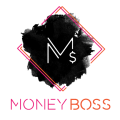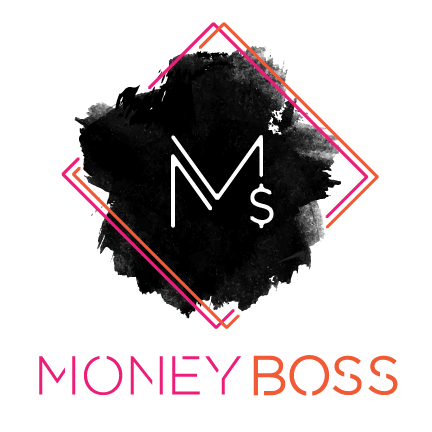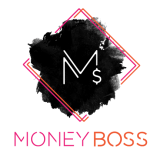Today we are continuing our discussion about what budgeting platform you should consider if you’ve been a longtime user of mint.com.
Certified Financial Planner, Katherine Edwards joins us to share of her experience using the YNAB, [aka You Need a Budget] platform which takes a completely different approach to the whole budgeting idea.
Listen in as she discusses some pros and cons that will help you with your decision on which platform you want to move to.
Anna’s Takeaways:
- Budgeting App YNAB’s Benefits (01:30)
- Personal Finance App Features And Usage (4:19)
- Budgeting And Personal Finance Management (7:57)
- Using Personal Finance Apps For Budgeting And Tracking Expenses (11:02)
Meet Katherine Edwards, a Certified Financial Planner® at Mainstreet since 2022. With a passion for helping clients achieve financial peace and enjoy life, she’s been in the industry since 2014, earning her CFP® designation at Duke University in 2017. Katherine believes in the transformative power of a tailored financial plan and has dedicated herself to educating others about its importance. Beyond her financial expertise, she volunteers to provide counseling on debt and budgeting and has spoken at academic institutions on various financial topics. Based just outside Nashville, in Murfreesboro, Katherine enjoys exploring new restaurants, wine tasting, and spending quality time with her husband and two golden retrievers.
- Rate, Review, & Follow on Apple Podcasts
- Money Boss Parents! Welcome to Anna’s Money Boss Parent podcast, your go-to resource for mastering money management while raising a family. Join me as we explore practical tips, expert insights, and inspiring stories to help you achieve financial success and create a brighter future for your loved ones. Don’t forget to subscribe, rate, and review the show to support our mission of empowering parents like you to take charge of their finances and build a prosperous life for their families. Let’s thrive together on this incredible journey!
- Links mentioned in this episode
3 Alternatives to Mint.com – Article by Katherine Edwards, CFP
- FREE GUIDE- Kid Money Boss: School isn’t teaching my son about Money. It’s up to us Parents. Here are 9 tools I am using to team my son, everything I never learned as a kid.
- Websites:
Transcript
Hey Money Boss Parents. Welcome back to the Money Boss Parent podcast, Anna Sergunina here. And I'm excited to connect with you today, as we are continuing our discussion about what budgeting platform should you consider if you've been a longtime user of mint.com as I have and or, if you are in the, in the mood and on the market to explore maybe an alternative budgeting platform. Today, I want to bring to you a guest, from Mainstreet financial planning a Certified Financial Planner, Katherine Edwards, and she's going to share with us her experience of using YNAB, you need a budget platform that has completely different approach to the whole budgeting idea. And they utilize something called every dollar gets a job or a zero budgeting method, as Katherine discusses with us how she has been using this tool for the last 10 years. And what are some of the pros and cons and how if you are meant user, how you can actually also convert and bring your data onto that platform. So I welcome you to tune in. I want to invite Katherine Edwards to chime in. She's a user of YNAB and has an interesting story. And yeah, I'm all I'm all ears because I'm not familiar with this, this program at all.
Katherine Edwards:Yeah. Hi. Happy early Thanksgiving, everybody. Um, I so why not? It's funny, the way that I found this was I was gifted, my husband and I were gifted this app and a subscription for one year 10 years ago when we got married. So it was the wedding gift that somebody gave us was just we'd never heard of it before. But YNAB stands for you need a budget. And it's still around 10 years later, it's really stood with stood withstood, is that the right way to say that the test of time. And so there are a few things I like about it. One of the main sticks that they have is that it's a zero based budgeting app. So it is an app on your phone and it syncs across the web and a tablet. So wherever you are, it'll sync within that. So it is different than Tiller in that way that you can have it as an app, but it's a zero based budget. So you basically you can you can sync all of your things, or you can manually input them, which is a lot of work. However, that could speak to a little bit more of the privacy piece, if you don't want it to scrape it, you can, you know, manually put it in and it'll learn how you use your money. And some people like the accountability of having to put it in every time I guess. But zero based budgeting basically means your your paychecks will come in, you can share it with a partner, you actually can have up to six people on one subscription that can be within. So if it's a family or your teenagers or something like that, that would be a good way to keep track with the teenager or with your partner so that you can kind of update and see where you guys are at in terms of groceries or overeating or overeating, eating, eating out and what categories you tend to spend more in. So the purpose of it is that you kind of the four rules that are on there, it says give every dollar a job, you're you're supposed to use every single dollar that you get paid to go somewhere. So whether it's to savings or to debt, and it pulls all of those things, you can track your net worth and those sorts of things. But also create a budget so that you know that you're on track to pay off those things. And I also like how you can put in, you know, either one time expenses, or if you have like, for example, this time of year holiday spending that you can set up a budget for it throughout the year so that you're saving, you know, maybe 25 bucks a month, so that by the time you get to November, December, you've saved for this one time expense. And you don't have to put it on a credit card because it kind of comes out of left field every time when we finally get to the end of the year. And it's like, oh, I didn't budget for this. So things like that, whether it's car maintenance, you know, you're gonna need a new car, or you needed a new some appliance or something like that. You can put it in the budget. And what another thing that I like about it is that because it's zero based, you can go in and borrow money from different categories. So and maybe that was me, especially when we first were getting started and combining our finances. It was fun to me to have extra money at the end of the month. But also to kind of get the feel for where I was having extra money. So you know, if you're not commuting as much, and you thought you were spending a certain amount on gas, but you end up having $50 leftover at the end of the month, but you overspent on groceries you can move the $50 from gas to cover the grocery so it kind of gives you a little bit of a and that way I feel like it helps you learn where you maybe can edit the budget that you thought your spending. And then it also allows you to kind of cover if your electric bill is really high one month, and you have, you know, a super low water bill or something like that you can borrow money from it. So I enjoyed that aspect of it that you could borrow from different categories. Because, yeah, I just I think it helps you think think through your budget as a whole. So the like it says on here, there's the 34, which is really funny to me, 34 day free trial. It's like, not a spreadsheet at all, I think it's kind of like the anti spreadsheet. But I think it's it's very user friendly. I think over the course of the past 10 years, they've come up with a lot of different either they call them widgets, but different things that come along with it. So they have a loan calculator, they have the net worth tracker, they have a budget analyzers and kind of look at your spending patterns over time. So I think a lot of these tools like like tiller and have really come a long way in terms of being holistic and allowing you to not just track expenses, but for it to be more than just more than just that.
Anna Sergunina:So how, like in terms of how it just just kind of thinking like to compare it to tiller and meant,
Anna Sergunina:How, like, how much involvement Do you think you should be allocating for like to manage this like what with tiller, it seems to me that that's definitely like Jennifer said, if you're nerdy you want to set it up.
Katherine Edwards:It takes a lot of time to set it up. But once you set it up, it's not too much time, you just go in there and categorize every time you go in there. Yes, I would, I would say it's the same, I would say it's on the front end, when you enter, when you download any of these apps, you're gonna have to go in and fill in the budget and connect it to all of the banks and those sorts of things. And I do think it would probably be a month or two of a learning curve of how to make sure that you know how to just functionally move and borrow the money and move it to this category and all of those sorts of things. But after that, I think it becomes pretty intuitive and putting in whether you want it to you can import the data or you can have it sync and pull the data through. So you know whether you want to some people like to a lot of like original YNAB errs, like to input it manually. And I think part of that is just the awareness piece of spending money and the action of putting the the item in there, that's kind of when I first when we first started using it, we would put in every transaction manually, and save all of our seats and put in our gas bill and all that stuff. So it just it was it very much allowed. Jonathan, my husband and I to realize what our budget should be and how much we're spending and all that sort of thing. But I do think it's a little it's definitely a some setup on the front end. And then I think after that it becomes pretty, pretty intuitive. So not a ton of time.
Anna Sergunina:But you have you have an app on your phone. So you can pass anytime. Yes. Awesome. Can you can you clarify? Because I know that I have a question on that is I don't have one app account. So it talks about like you mentioned this to reallocating the money from one category to another. This is just manual, right? Do you like just manually moving categories? I just think the balance is you're not moving money anywhere else. Correct?
Katherine Edwards:Right, yes, you're not actually moving the money, it's more so for you to know where you have leftover money as you're spinning the transactions. And you're saying, Okay, I spend 100 bucks on gas every month, and I've already spent 73 But it's the last day of the month. So I have 20 You know, six $7 leftover and I can put it over here I went to go see a movie in you know, my entertainment budget is over. So it allows you to see at the end of the month, how much you're actually over budget. So you can see it by category. But you can also see okay, I actually am not as over budget because I was able to move stuff around from where I you know, overspent or under spend to kind of equal it out every month. So I always liked that part. It made me feel a little bit better about myself when I could Oh, I have extra money in my you know, whatever it would be.
Anna Sergunina:And this last one aging your money. Is that like this echo like with the savings component or was that the moving money part you're talking about? Yes,
Katherine Edwards:the goal is that they want you to have your paycheck you not being living paycheck to paycheck so that your money that you're categorizing is not coming from every like every paycheck that gets deposited is coming from a savings account that you basically are the money in the savings account is growing older so that you are you know basically to create the momentum of saving and having the money stay in the your savings account longer. So that's kind of their thought process behind the aging your money.
Anna Sergunina:Yeah, that's awesome, too. Okay. I wanted to do Um, I mentioned the same thing, I don't know, if Katherine, if you saw this yet the same kind of thing, you can take your main data, and they have the steps of how you can like, you know, grab your transactions and kind of get the head start. Do you? Do you recommend that? Or do you recommend for people just to set up an account and, like, kind of start fresh? Like I think Jennifer said that the tiller has 90 days.
Katherine Edwards:Look back, it might be longer, I can't remember. But at least at least 90 days, at least, I think it's I think it's definitely worth at least downloading the data to have the historical to have it historically in the in the app. Because you're gonna have to add the if that's something you can't do is it's not going to transfer all the bank connections to granted do that part anyways. But in terms of downloading and having some history, I think, especially for clients who have had meant for a long time, you know, there's so much data in there to go ahead and move it over and keep it somewhere where it'll be useful. Yeah, okay.
Jennifer Bush:But I would do would be I would, if it were me trying to change, I would just start it now. Download one or two accounts. Sorry, I don't mean to download, but connect one or two accounts, try it out for a month, see how you like the functionality, because you get a free trial with these guys. And with tiller, you try it out, see how you like the interface, how much work is it. And then once you have your data in a spreadsheet, and you can upload your data to whatever one you picked, but rather than doing all that work in the front end, just just start out with one or two accounts, see how it goes.
Katherine Edwards:That's a good idea I would do. That's what I would do. Because there's other ones too, there's monarch money, and there's empower and powers doing some stuff, too. So there's lots of different options.
Anna Sergunina:I was just thinking that, maybe wait, that's probably because I already downloaded my mini transactions, because I wanted to see how it works. But maybe wait again, and let me collect the data and do it again on December 30 or 31st. That way you have a complete, you know, a year end summary.
Jennifer Bush:You do. You said that you can download different you can filter so why don't you just do it as of now I can do the last month or two last month. Yeah. Yeah, that yeah, that you can see it's easier to know where you left off then. Yes,
Anna Sergunina:true. Or if you want to have one big file, you can Yeah, all together. Yeah.


